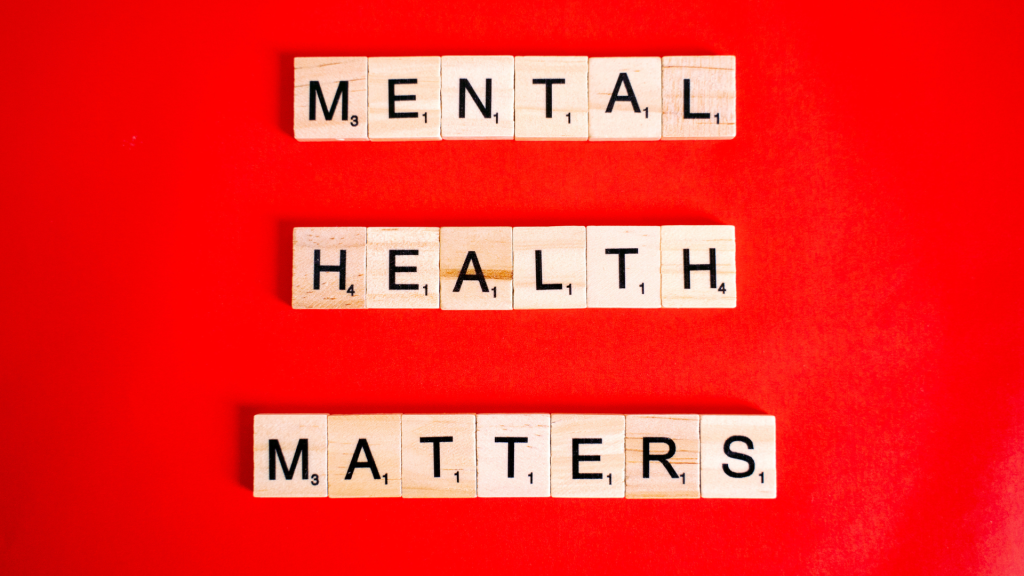
Mental health is an integral part of our overall well-being and plays a crucial role in our ability to function, relate to others, and enjoy life. It encompasses our emotional, psychological, and social well-being, affecting how we think, feel, and behave in our daily lives. Good mental health allows us to cope with the stress and challenges of life, maintain healthy relationships, and make meaningful contributions to our community.
What is Mental Health?
Mental health refers to a person’s overall psychological, emotional, and social well-being. It encompasses our ability to think, feel, and behave in ways that allow us to cope with the daily stresses of life, form and maintain healthy relationships with others, and make meaningful contributions to our communities. Mental health includes the ability to:
- Manage stress and adversity
- Maintain healthy relationships with others
- Feel a sense of purpose and meaning in life
- Make decisions and solve problems
- Recognize and express a range of emotions in a healthy way
- Cope with difficult situations and bounce back from setbacks
Mental health is not just the absence of mental illness but also includes the presence of positive mental health factors, such as resilience, emotional intelligence, and social support. Good mental health is important for our overall well-being and allows us to live fulfilling lives.
Why Mental Health Matters?
Mental health is just as important as physical health. It affects every aspect of our lives, including our relationships, work, and overall quality of life. Neglecting mental health can lead to various physical health problems and can impact our ability to function in our daily lives. Mental health matters because it is essential for our overall well-being, physical health, social relationships, work productivity, and community well-being. Taking care of our mental health should be a priority for everyone.
Personal well-being
Good mental health contributes to our overall sense of well-being and allows us to enjoy life and cope with its ups and downs. It enables us to maintain healthy relationships with others, make good decisions, and pursue our goals and interests.
Physical health
Mental health and physical health are closely linked. Poor mental health can lead to physical health problems such as heart disease, high blood pressure, and obesity.
Social relationships
Good mental health allows us to form and maintain healthy relationships with others. It enables us to communicate effectively, resolve conflicts, and maintain a sense of social connectedness.
Work productivity
Poor mental health can have a negative impact on our ability to work and perform daily tasks. It can lead to absenteeism, reduced productivity, and difficulty concentrating.
Community well-being
Good mental health is essential for creating healthy communities. It enables us to contribute positively to our communities and society and to work together to create supportive and inclusive environments.
Stigma Around Mental Health

The stigma around mental health refers to the negative attitudes and beliefs that people have about mental illness or mental health challenges. Stigma can lead to discrimination and social exclusion of people with mental health conditions, as well as prevent them from seeking help and treatment. Stigma around mental health can take many forms, including:
Stereotyping
People with mental health conditions are often stereotyped as violent, unpredictable, or unable to make decisions for themselves.
Discrimination
People with mental health conditions may face discrimination in employment, housing, and healthcare.
Shame and guilt
People with mental health conditions may feel ashamed or guilty about their condition and may be reluctant to seek help or talk to others about their struggles.
Lack of understanding
Many people lack a basic understanding of mental health and may view it as a weakness or character flaw.
Stigma around mental health can have serious consequences for individuals and society as a whole. It can prevent people from seeking help and treatment, leading to worsening symptoms and increased suffering. It can also contribute to social isolation, unemployment, and poverty.
To reduce the stigma around mental health, we need to:
- Educate ourselves and others about mental health conditions and their causes, symptoms, and treatments.
- Challenge negative attitudes and stereotypes by speaking out against stigma and discrimination.
- Encourage people to seek help and treatment when they need it and provide support and understanding to those who are struggling.
- Advocate for policies and programs that support mental health and reduce stigma.
By reducing the stigma around mental health, we can create a more supportive and inclusive society where people feel safe and supported to seek help and treatment when they need it.
How to Prioritize Mental Health?
Prioritizing mental health is essential for overall well-being and can improve our quality of life. Here are some tips on how to prioritize your mental health:
Recognize the signs of stress
Learn to identify the early signs of stress, such as feeling overwhelmed or anxious, so that you can take action before it becomes a bigger problem.
Practice self-care
Make time for self-care activities that promote relaxation and reduce stress, such as exercise, meditation, or spending time in nature.
Set boundaries
Learn to say no to commitments or obligations that you don’t have the time or energy for and prioritize activities that are meaningful and fulfilling.
Connect with others
Build and maintain positive relationships with friends and family, and seek support when you need it.
Seek professional help
If you are struggling with mental health challenges, don’t hesitate to seek professional help from a mental health provider.
Practice healthy habits
Take care of your physical health by getting enough sleep, eating a balanced diet, and avoiding drugs and alcohol.
Take breaks
Make regular breaks from work or other obligations to recharge and reduce stress.
Practice gratitude
Focus on the positive aspects of your life and practice gratitude regularly.
By prioritizing your mental health, you can improve your overall well-being, reduce stress, and increase your ability to cope with life’s challenges. Remember, taking care of your mental health is a lifelong process, and it’s important to make it a priority in your daily life.
At Lifebonder, we understand the negative influences that Social Media can have on your mental health. We designed the Lifebonder app because we want to be a part of the solution. And so, we refrain from using algorithms that exploit and manipulate you to form unhealthy habits like doom-scrolling.
We aim to make our users Tech-savvy, not Tech-addicted. At LifeBonder, we design our platform with a purpose – to help you build friendships and plan social meet-ups offline because we want you to create a life worth living. The reason Why We Exist – is to address the problem of mental health and wellness.
Together we can drive change…


